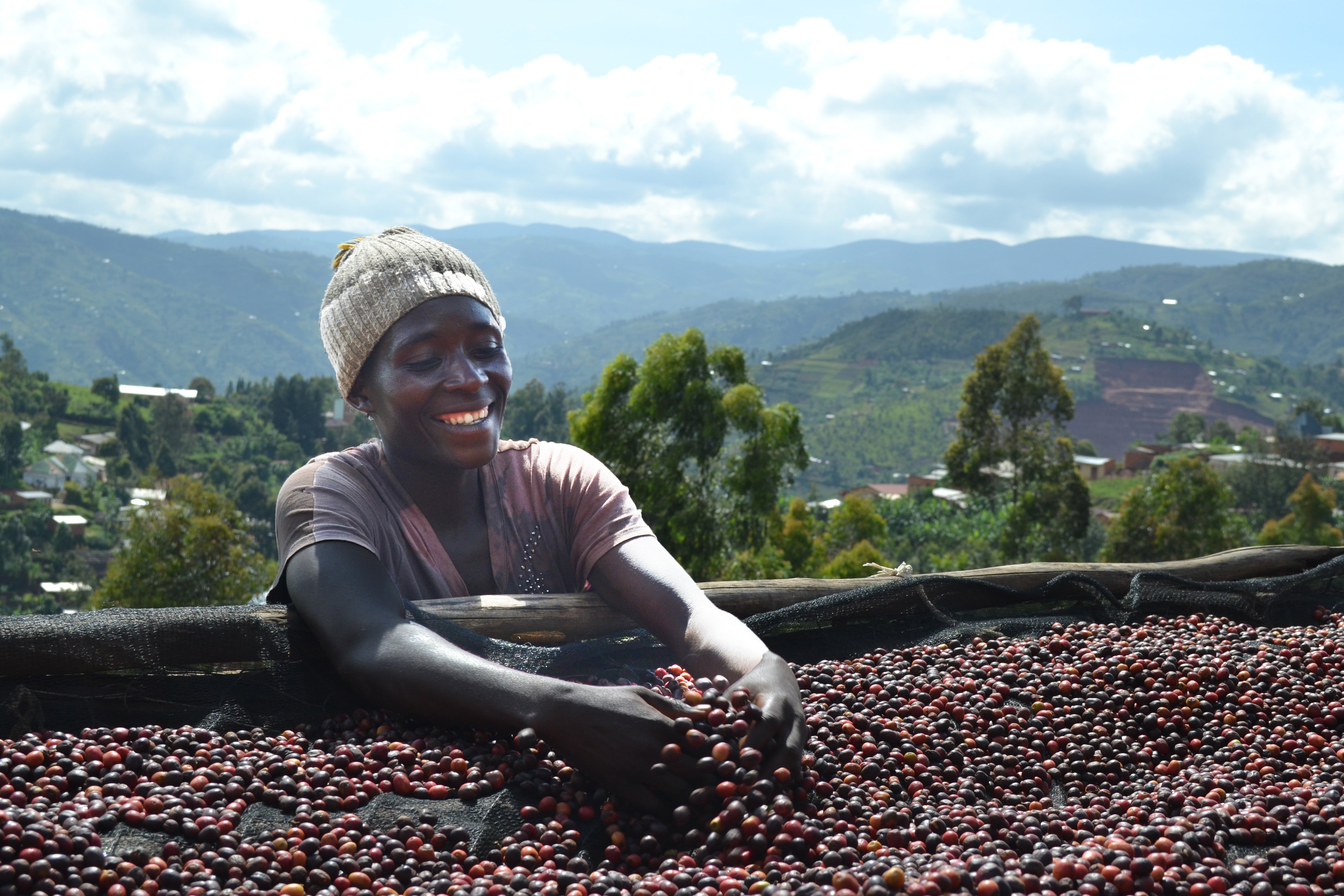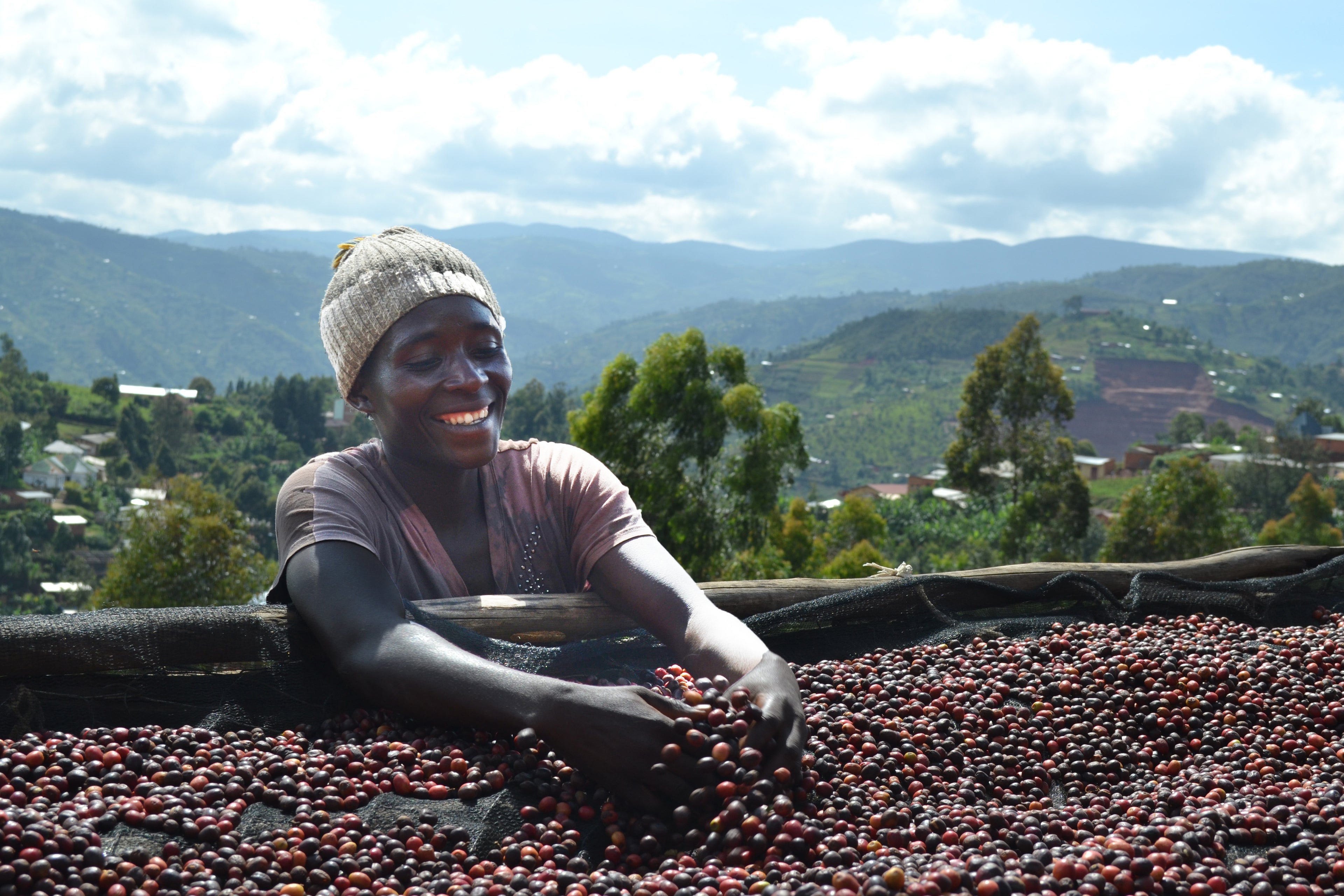
In April 2022, thanks to an invite from our friends at Omwani, we sent Emilie to Burundi to visit the Migoti Mountain Washing Station, in the rainforest 30km above Bujumbura.
The Migoti Coffee Company takes its name from an indigenous tree that grows in the area as well as the name of the hill on which they built their first washing station. The directors, Dan Brose and Pontien Ntunzwenimana, whose backgrounds are both in engineering, set up the company in 2015, wanting to help restart coffee production in the country after a devastating 12-year civil war, and help the community to rebuild. They brought Zephyrn on board a couple of years later, hoping that his breadth of experience would help inform their practices. Since then, Migoti has spent a lot of resources trying to teach farmers about best practices, on how to increase their yield, and how to improve their coffee. One of these practices involves intercropping plants that can be used to produce essential oils, allowing the farmers to maximize their income whilst immature plants grow to maturity.

In Burundi, as is usual in Africa, the beans are not grown by one farmer, but by many, who in turn sell their coffee cherries to a processing station, to process and then sell. Some of these farmers must walk as far as 20km per day during the picking season, carrying up to 30kg. On average, 6.5kg of coffee cherries will only yield just one kilogram of coffee beans. Emilie had the chance to visit a couple of farms, one of which was owned by Pascal (pictured above) who has 10 farms with over 1000 trees. Before Migoti built their washing station across the road from his farm, Pascal and his children would have to walk their cherries for miles across the mountains to the nearest processing station.

When Emilie arrived in Bujumbura, after hopping on a moto-taxi and a short trek through the mountains, she arrived at the crest of the hill, where Migoti have their washing station as well as small model farm. For the next few days, she was taught about all parts of the process by Dan, Pontien and Zephryn. After arriving at the cherry reception, farmers then have their cherries floated, separating all of the underripe and less dense cherries. Due to Burundian legislation, stations must buy all of these cherries, but they can sell the best cherries (Grade A) as premium coffee beans. Some of these cherries are destined to be processed as a washed coffee and some as a natural coffee. Regardless of their destiny, they will be graded and quality checked continually as they are washed and then dried on large drying beds in the sun. One of the unique practices that Migoti Washing Station uses is to dance on the pulped coffee beans in order to help remove more of their muselage. The song of the workers doing this can be heard echoing across the community.

(Pontien pictured left, on the right, expressed to Emilie that "every season has it's challenges")
What became clear to Emilie during this visit is the amount of hard work that goes into every cup of coffee. Beans are hand picked, hand carried, hand washed, hand turned and hand graded at every stage. It really makes you appreciate the people who are involved in the process. As Zephryn (pictured above left) told Emilie, “coffee is about passion” and this is abundantly clear.
Migoti Coffee Company undoubtedly have a passion for coffee and for helping to change the lives of those in their community.
We’re very proud to have coffee from Migoti available on our website and across our shops, and hope this relationship will continue for years to come!
